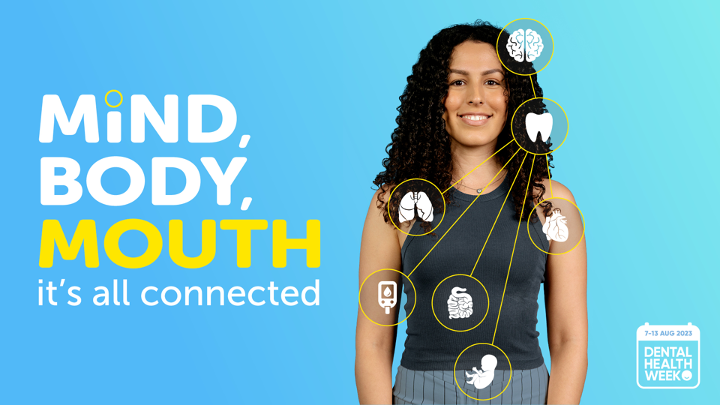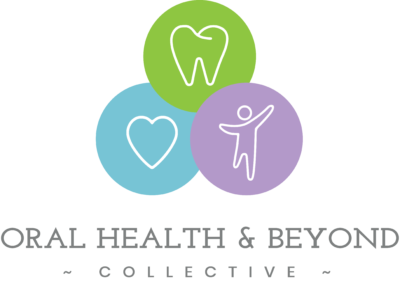
Welcome to Dental Health Week (DHW), an annual oral health campaign brought to you by the Australian Dental Association (ADA) and KIDS Mackay. Taking place each year in the first full week of August, DHW aims to raise awareness about the importance of caring for your teeth and gums to maintain a lifelong smile.
This year, DHW is shedding light on the intricate connection between oral health and overall well-being. It’s fascinating to discover that diseases in the mouth can have far-reaching effects on the body. Bacteria in the mouth can travel to different parts of the body, while inflammation in the mouth can contribute to overall inflammation.
The impact of oral health extends beyond the mouth, with numerous medical conditions influenced by, or influencing oral health. Surprisingly, almost half of the Australian population has one or more chronic diseases, yet a staggering 70% of people are unaware of the connection between their oral health and these conditions.
Let’s explore some of the notable links between oral health and various chronic conditions:
Type 2 Diabetes: Severe gum disease has a strong association with diabetes and heart disease. Bacteria from gum disease can spread through the bloodstream, leading to arterial and blood vessel issues. Managing diabetes becomes more challenging when gum disease is present, and in turn, diabetes worsens gum disease.
Adverse Pregnancy Outcomes: Bacterial changes resulting from gum disease can spread to the placenta, potentially causing preterm delivery, pre-eclampsia (high blood pressure during pregnancy), or low birth weight.
Heart Diseases: The relationship between severe gum disease and heart conditions is significant. Bacteria from gum disease can enter the bloodstream and contribute to the buildup of plaque within arteries and blood vessels.
Gut Issues: Emerging evidence suggests that oral health and gut diseases may worsen each other due to increased inflammation. Bacteria from the mouth can travel to the gut, potentially exacerbating existing gut conditions.
Lung Conditions: Oral health is also linked to lung conditions, including COVID-19. Bacteria from the mouth can be inhaled into the lungs, potentially worsening respiratory conditions. Therefore, maintaining good oral health becomes particularly crucial for individuals with lung issues.
Alzheimer’s Disease: Recent findings have revealed a connection between severe gum disease and Alzheimer’s disease. Bacteria from the mouth have been found in brain plaques associated with the development of Alzheimer’s disease and memory decline.
Understanding the significance of oral health in maintaining overall well-being is paramount. By prioritising good oral hygiene, not only can we improve the health of our mouths, but we can also minimize the impact of oral diseases on other chronic conditions.
To ensure optimal oral health, we encourage everyone to follow these four key steps:
- Brush your teeth twice a day using fluoride toothpaste. Select a toothpaste with fluoride and consider low-fluoride options for children. Brush for at least two minutes, using a toothbrush with a small head and soft bristles. Angle the brush to clean near the gum line, avoiding excessive pressure that could harm your teeth and gums. Remember to replace your toothbrush every three months.
- Clean between your teeth daily using floss or interdental brushes. Incorporate floss, interdental brushes, or a water flosser into your daily routine. Start flossing your children’s teeth as soon as two teeth touch side-by-side. Your dentist can provide guidance on the most suitable option for your teeth.
- Maintain a healthy, balanced diet while limiting added sugar intake. Sugar is the main culprit behind tooth decay. Opt for tap water instead of sugary drinks, including fruit juice. Read nutrition labels to determine the sugar content in food and drink products. Choose tooth-friendly snacks like cheese, nuts, and vegetables, and try to avoid frequent snacking.
- Visit your dentist regularly for check-ups and preventative care. Schedule at least one dental visit per year, and take your children as soon as their first tooth appears. Depending on your specific needs, your dentist may recommend more frequent visits. During check-ups, your dentist will assess for tooth decay, gum disease, and signs of oral cancer. Reach out to our team at KIDS to book your appointment.
Join KIDS Mackay in celebrating Dental Health Week 2023 and embracing the profound mind, body, and mouth connection. By understanding this interplay, we can make informed decisions to maintain excellent oral health throughout our lives. Remember, your smile is a lifelong asset, and we are here to support you on your journey to a healthy, confident smile!
This blog aligns with the theme and messages communicated by the Australian Dental Association (ADA) for Dental Health Week 2023.



